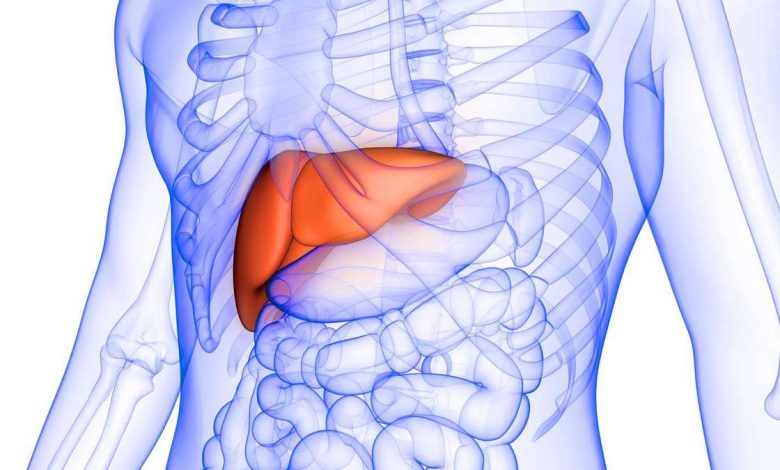Hepatomegaly, enlarged liver: What's it, causes, symptoms, diagnostics, treatment, prevention

Enlarged liver; Hepatosplenomegaly; Enlarged liver; Liver enlargement
What is an enlarged liver?
Increase in liver, also known as hepatomegaly, is a state, which occurs, when your liver swells and gets bigger, than usual. It can happen on its own, but most often it is a consequence of the underlying disease, such as fatty liver disease, cirrhosis, hepatitis, liver disease, associated with alcohol, or cancer.
If the liver is also enlarged, and spleen, this is called hepatosplenomegaly.
Causes of liver enlargement
There are many potential causes of liver enlargement., since the liver is involved in many bodily functions. It is affected by many conditions., which can cause hepatomegaly, including:
- Alcohol consumption (especially alcohol abuse
- Cancer metastases (spread of cancer to the liver)
- Congestive heart failure
- Glycogen storage disease
- Hepatitis A
- Hepatitis B
- Hepatitis C
- Hepatocellular carcinoma
- hereditary fructose intolerance
- Kissing disease
- Leukemia
- Niemann-Pick disease
- Primary biliary cholangitis
- Reye's syndrome
- Sarkoidoz
- Sclerosing cholangitis
- Portal vein thrombosis
- Steatosis (fat in the liver due to metabolic problems, such as diabetes, obesity and high triglycerides, also called non-alcoholic steatohepatitis or NASH)
Symptoms of an enlarged liver
An enlarged liver may not cause many signs or symptoms.. Some people may not even realize, that they are sick, until symptoms are felt, related to underlying cause. Common signs and symptoms of an enlarged liver include:
- Pain or discomfort in the upper right abdomen
- Nausea and vomiting
- Fatigue
- Loss of appetite
- Fever
- Yellowing of the skin and eyes (jaundice)
When You Need to Contact a Health Care Professional?
If you experience any signs or symptoms of an enlarged liver, you should contact your doctor as soon as possible. Your doctor may order blood tests or imaging tests, to rule out other possible causes, and be able to determine the best course of action for your situation.
Questions, that your doctor may ask
Your doctor may ask questions about your medical history and examine other areas of your body, to rule out other diseases. Try to answer the following questions as accurately and honestly as possible.:
- Have you been drinking alcohol recently?
- Are you taking any medication, including non-prescription?
- Have you had any viral illnesses recently, such as the flu or a cold?
- Have you recently been exposed to any contagious or infectious diseases?
- Do you have any chronic diseases, such as diabetes, obesity or high cholesterol?
- Do you have family members with a history of liver disease?
Diagnosis of an enlarged liver
The diagnosis of an enlarged liver usually begins with a physical examination and a medical history.. Tests to determine the cause of hepatomegaly vary depending on the suspected cause, but may include:
- X-ray of the abdomen
- Abdominal ultrasound (can be done to confirm status, If the doctor finds, that your liver is enlarged during a physical examination)
- CT of the abdomen
- Liver function tests , including blood clotting tests
- MRI of the abdomen
Treatment for an enlarged liver
Treatment for an enlarged liver depends on the underlying cause. The goal of treatment is to reduce the size of the liver and eliminate the underlying disease., causing it to increase. Treatment may include medication, lifestyle changes and, in some cases, surgical intervention.
Medicines
Medications may be prescribed to treat the underlying disease. For Example, medicines can be used to control viral hepatitis, reduce liver inflammation or reduce excessive alcohol intake.
Lifestyle changes
Making healthy lifestyle changes is an important part of treatment. To reduce the risk of liver enlargement, it is important to eat a balanced diet, exercise regularly, avoid excessive alcohol consumption and get regular check-ups.
home treatment for enlarged liver
In addition to medical treatment, there are some home remedies, which you can try, to help reduce the size of your liver.
- Drink plenty of water. Drinking plenty of water helps flush out toxins and reduces inflammation in the liver..
- A balanced diet. A balanced diet can help reduce inflammation and improve liver function..
- Limit your alcohol intake. Limiting alcohol consumption may help reduce fatty liver disease, inflammation of the liver and cirrhosis of the liver.
- Get regular exercise. Regular exercise improves overall health and reduces the risk of liver enlargement.
Prevention of liver enlargement
The best way to prevent liver enlargement is to lead a healthy lifestyle.. Choosing a Healthy Lifestyle, like a balanced diet, regular exercise and avoiding excessive alcohol consumption, may help reduce the risk of liver enlargement. It is also important to be aware of all family members, who have a history of liver disease, and consult a doctor, if you experience any signs or symptoms of an enlarged liver.
Used sources and literature
Martin P. Approach to the patient with liver disease. In: Goldman L, Schafer AI, eds. Goldman-Cecil Medicine. 26th ed. Philadelphia, PA: Elsevier; 2020:chap 137.
Plevris j, Parks R. The gastrointestinal system. In: Innes JA, Dover AR, Fairhurst K, eds. Macleod’s Clinical Examination. 14th ed. Philadelphia, PA: Elsevier; 2018:chap 6.
Squires I, Balistreri WF. Manifestations of liver disease. In: Kliegman RM, St. Geme JW, Bloom NJ, Shah SS, Tasker RC, Wilson KM, eds. Nelson Textbook of Pediatrics. 21st ed. Philadelphia, PA: Elsevier; 2020:chap 382.
